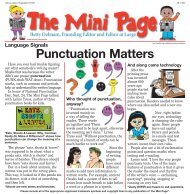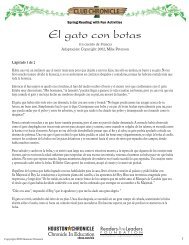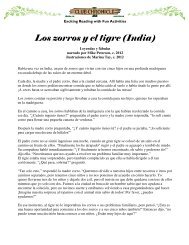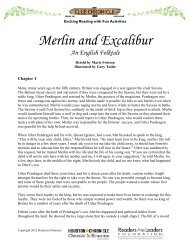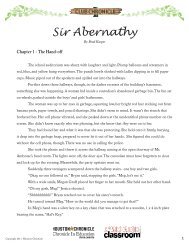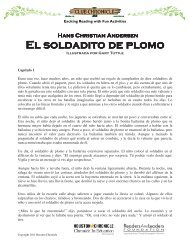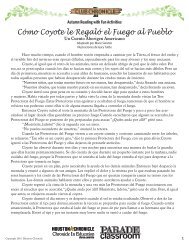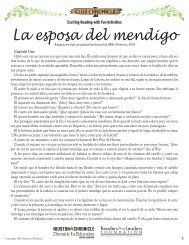Download
Download
Download
You also want an ePaper? Increase the reach of your titles
YUMPU automatically turns print PDFs into web optimized ePapers that Google loves.
Below: Fan coral off Grand Cayman, John Roseborough,NOAA. Left: Coral Reef off Grand Cayman, JohnRoseborough, NOAA.P ICTUREOnce environmental issues wereconsidered local problems. Peopleworried about pollution near theirhomes. They wanted this smokestackcleaned, that pipe to stop pumpingpollution. In 1970, people wanted topreserve species like eagles, pandasand grizzlies. These were and are alladmirable goals for the environmentalmovement.But today, because of advances inscience, computers and TV, air traveland e-mail, we can know instantly howwhole ecosystems around the worldare doing. Whether they are thrivingor barely surviving. This instant globalknowledge is a big change from thefirst Earth Day.The result has been that instead ofdemanding protection for a singlespecies, more people are demandingthe protection of whole habitats. Thefocus on habitats has brought muchattention to the dilemma of rainforestdestruction. You can learn more aboutit in a story on page 3 of this tabloid.But, a lesser known habitat is alsobeing threatened. The oceans’ coralreefs. Like rainforests, reefs are valuableresources and important parts ofthe global ecosystem. Coral reefs haveoften been described as “underwatergardens,” with their beautiful colors,intricate shapes and exotic creatures.Yet, despite their ecological importanceand beauty, the reefs are beingthreatened around the globe byhuman activities such as coastaldevelopment, overfishing and pollution.Worldwide, the coral reefs aredying and disappearing. And, as withthe rain forests, it will be up tohumans to stop the damage and learnhow to protect coral reefs for futuregenerations.T HIS...How can you help?All of the human threats posed tocorals can be reduced. By using thebest available technologies in powerplants, oil tankers and sewage treatmentfacilities, the effects of disturbanceand pollution can be lessened.Increased public education can reduceand eliminate the damage caused bypollution deforestation, fishing andother human activities. Use your voiceto promote conservation. Make youractions support your good intentions.The Center for Marine Conservation(CMC), is working to help createmarine sanctuaries in which humanactivities are regulated and marineecosystems, such as coral reefs, canprosper. The organization is dedicatedto the protection of marine life, andstrives to increase public awareness ofmarine conservation issues. CMC waspart of a successful effort to have theFlorida Keys designated as one of ournation's largest marine sanctuaries.Top: Boothbay Lab, NOAA. Above: Brain Coral, Center forEnvironmental Education, James H. Yelvington.Below: Cyanea, NOAA, Auster.Above: Sea star. Below: Sea Anemone, NOAA. Bottom: Crab.Check Out The Newspaper!Learning standard: creating graphic representationsThings to do!1. Become a reef artist and explorer.Use the photos of real coral reef creatureson this page to create your owncoral reef picture or model. Add one oras many of each to your reef as youlike. Learn more about the reef andadd more species. Color your creationwith bright, lively colors because coralreefs are among the brightest placeson the planet.2. Find out what coral is. Is it a plantor an animal? Write a research paperon corals. Describe their life cycle andthe danger posed to coral reefs.Include drawings.Extra! Extra! Learn More!Find school or public library books tolearn more about the coral reef. Usecomputer encyclopedias or perform anInternet search for reef information.Visit the websites of these two organizationsthat concentrate on coral reefconservation.Center for Marine Conservationhttp://www.cmc-ocean.orgThe Coral Reef Alliancehttp://www.coral.orgPlease note that websites often changeAbove: Purple SeaUrchin, Center forMarine Conservation,Ron Schmeider.Right: Sea Foam,Center forEnvironmentalEducation.Left: Rox Anemone, Center forEnvironmental Education, RonSchmeider.9



